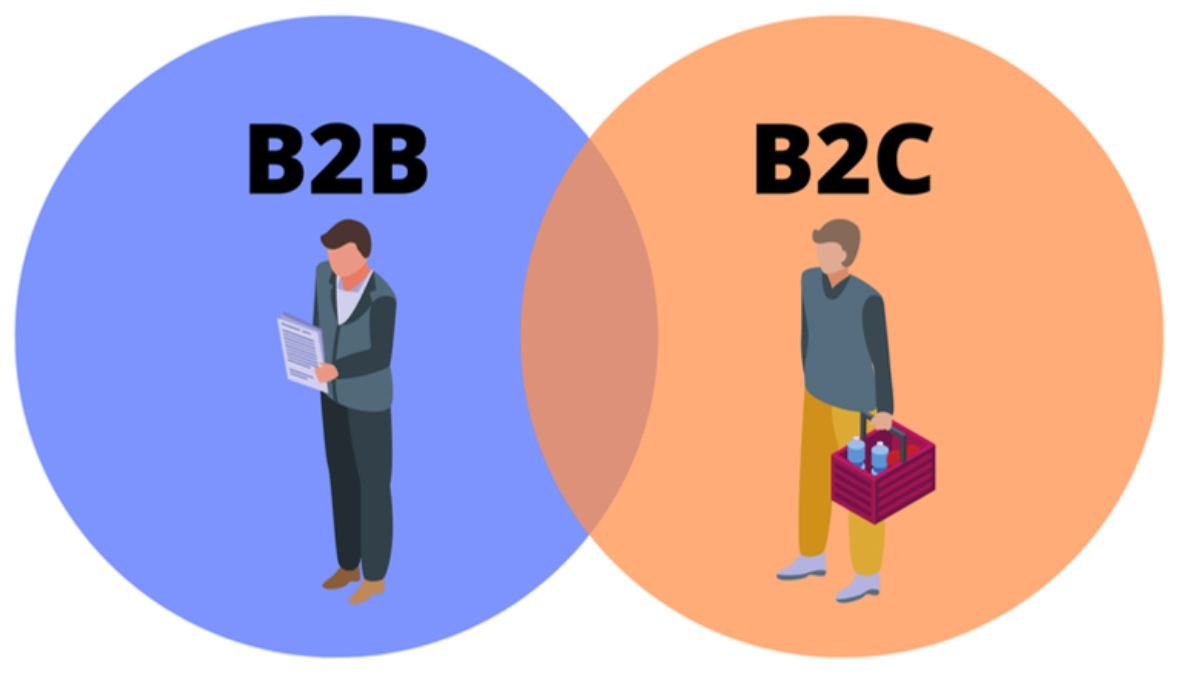Key Takeaways
- Understanding the unique characteristics of both B2B and B2C marketing strategies can significantly enhance business outcomes.
- Technology and data are pivotal in shaping modern marketing approaches, driving a conversion-driven focus in both sectors.
- Creating personalized and engaging experiences is crucial for capturing and retaining customer attention, regardless of the market type.
Table of Contents
Introduction to B2B and B2C Marketing
Marketing is a dynamic field distinguished primarily by two critical strategies: Business to Business (B2B) and Business to Consumer (B2C). These methods cater to distinct audiences, each possessing unique motivations, decision-making processes, and purchasing behaviors. Companies aiming to succeed must understand these nuances. Businesses can customize their marketing strategies to improve engagement and boost revenue growth by acknowledging these significant distinctions.
In today’s competitive landscape, identifying and executing tailored tactics that resonate with target audiences is a cornerstone of success. Whether crafting in-depth white papers that appeal to professional buyers in the B2B sector or designing captivating social media campaigns that engage B2C consumers, choosing the right approach is vital. Each strategy requires a distinct mindset and skill set, turning the art of marketing into a critical business function.
Key Differences Between B2B and B2C
The essence of B2B marketing lies in its concentrated efforts on building long-lasting relationships. For example, examining Business to Business (B2B) vs. Business to Consumer (B2C) Data Analysis sheds light on key distinctions that effective marketers must grasp to craft strategies that engage and convert. Decisions in this sector are often collective, necessitating a detailed, education-centered approach. Content in B2B marketing is typically data-driven and highly informative, leaning towards logical appeals and thorough cost-benefit analyses. In contrast, B2C marketing often hinges on emotional connections. Its primary aim is to engage individual consumers through compelling storytelling, resonant brand narratives and offers that cater to immediate gratification. Discerning these differences is invaluable and helps streamline marketing activities for better outcomes.
Current Trends Shaping Marketing Strategies
The marketing landscape is perpetually evolving, with several influential trends reshaping industry strategies. One such trend is omnichannel marketing, which enables businesses to deliver a seamless and cohesive customer experience across different platforms and touchpoints. Video content also revolutionizes engagements by capturing attention and conveying messages dynamically. Furthermore, story-driven campaigns are becoming increasingly popular, captivating consumers more effectively than traditional direct selling techniques.
These contemporary trends are critical for B2B and B2C marketers seeking to execute strategies that genuinely engage and convert their target markets. For instance, as reported in Marketing Dive, understanding these trends is vital for crafting successful campaigns that resonate with the nuances of different target audiences.
Role of Technology and Data
Advanced technology and an abundance of data are revolutionizing marketing strategies. The ability to harness tools like customer relationship management (CRM) systems, big data analytics, and artificial intelligence has opened new avenues for granular customer insights and operational efficiency. With these technologies, modern marketing campaigns can be more targeted and effective, resulting in improved customer experiences and increased returns on investment.
A Forbes article elucidates the transformative impact of technology on marketing strategies. It discusses how these advancements enhance decision-making and refine approaches to customer engagement.
Implementing Personalization Strategies
Personalization has emerged as a cornerstone of effective marketing strategies today. Businesses can dramatically enhance their engagement rates by crafting messages and offers that resonate on a personal level. Personalization strategies might include dynamic website content, personalized email marketing, and recommendation engines tailored to past buying behaviors. These techniques foster deeper customer connections and significantly increase conversion and retention rates by making customers feel valued and understood.
Real-World Examples and Case Studies
Many trailblazing companies have capitalized on B2B and B2C marketing principles by implementing innovative strategies. Adobe, for instance, leverages enhanced customer experiences and personalized journeys to achieve substantial success in the B2B sphere. Conversely, Nike’s B2C initiatives are often centered around emotionally charged marketing campaigns that align with its brand ethos, keeping consumers deeply connected and engaged.
These case studies demonstrate how understanding and applying B2B and B2C principles can pave the way for effective marketing strategies that translate to business success.
Potential Challenges and Solutions
Marketing in both B2B and B2C contexts has its challenges. Rapidly evolving technologies, managing vast volumes of data, and addressing privacy issues present significant hurdles for businesses. However, companies can stay ahead of the curve by remaining agile and continuously adapting their strategies. Emphasizing transparency and ethical practices is also critical, as it helps maintain customer trust while navigating the complexities of digital marketing.
Proactive problem-solving and informed about industry developments are crucial to overcoming these challenges and achieving sustainable marketing success.
Future Predictions and Innovations
The future of marketing is bright, filled with potential innovations that promise to reshape the landscape. Emerging technologies like augmented reality offer exciting new opportunities for immersive customer engagement, while advanced customer segmentation and targeting strategies are set to revolutionize how businesses connect with their audiences. As marketers anticipate these trends, staying ahead of the curve will be crucial, ensuring they can effectively tap into new potentials and maintain their competitive edge.
The marketing field will undoubtedly continue to evolve, demanding that businesses remain flexible, forward-thinking, and willing to embrace change as they seek to create impactful strategies that resonate with their target audiences.










